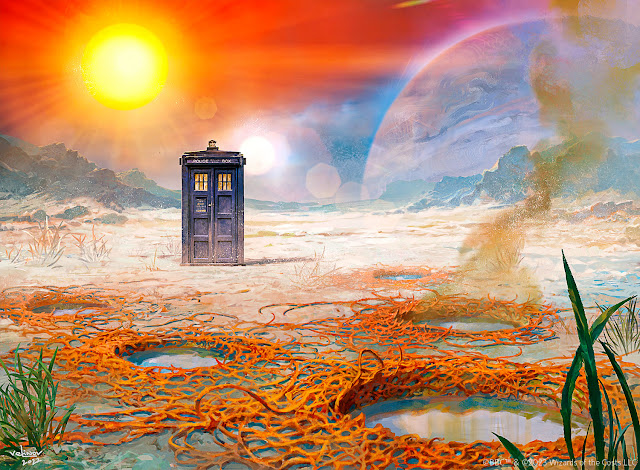An Unearthly Child [TV/1963.11.23 ~ 12.14]
★★★☆☆
One would think it daunting to talk about the very beginning of one of the world's most influential science-fiction television shows, a Saturday evening staple of the BBC which would (in sixty years) become such a behemoth of modern popular culture. In actuality, I think it's quite easy to talk about the very first serial of Dr. Who because there's simply so much to talk about. Much like the general consensus, I do think that the serial drops in quality a bit after the superb first episode (which works much better as a standalone introduction anyway, both narrative and direction wise), but only because the first episode is truly a superb piece of television. The other three episodes are not bad in any sense of the word -- sometimes slow and boring, sure, but never bad -- and I'd argue that the remainder of An Unearthly Child is just as important, if not more, to the show's mythos as the much-acclaimed first part.
In the 100,000 BC segment (the bulk of the story), we get to see the Doctor in his true element. He's incredibly stubborn, dangerous when left loose, even flirting with homicidal tendencies (which is when Ian comes in and changes the universe forever with one firm, incredibly human hand) -- which is what many people tend to point out, that the Doctor was not the Doctor until Barbara and Ian helped him find the right path. There's certainly truth in that statement, but I can't fathom actually believing that when even in this very first serial, we get to see the Doctor be compassionate (refusing to help the cavemen until he knows his companions are safe) as well as clever and quick-witted (turning popular opinion of the cavemen in his favour in one fell swoop). It's clear that the Doctor was never written to be antagonistic or cold, and that William Hartnell was set on the word go to imbue the character with as much mystery, commanding presence, and outstanding warmth as possible.
Ian, Barbara and Susan are well-defined characters from the off as well, acting as the Doctor's foil and -- in the case of the former two characters -- the audience identification figures. We follow the two schoolteachers' eyes as they walk inside the TARDIS, and director Waris Hussein does a magnificent job of giivng the ship a sense of mystery, a sense of otherness. In fact, Hussein really had no reason to give this serial such an assured directorial eye; the close-ups as the travellers witnes the final caveman fight, the shot of cavemen coming out of hiding at the end of episode 3, the entire first episode, one could go on describing just how good this piece of television looks. I only wish the monumental first story of Dr. Who was as captivating as something of its status ought to have been -- a story mostly dictated by caveman politics can only be so interesting -- but An Unearthly Child is by no means a lacking serial. There is so much to admire here, much more than many people acknowledge. Whether you like the quest for fire or not, there is a special sense of momentum here that led to the longest-running science fiction television show. No matter how one looks at it, I think it's pretty easy to call it an essential watch for every Who fan.





Comments
Post a Comment